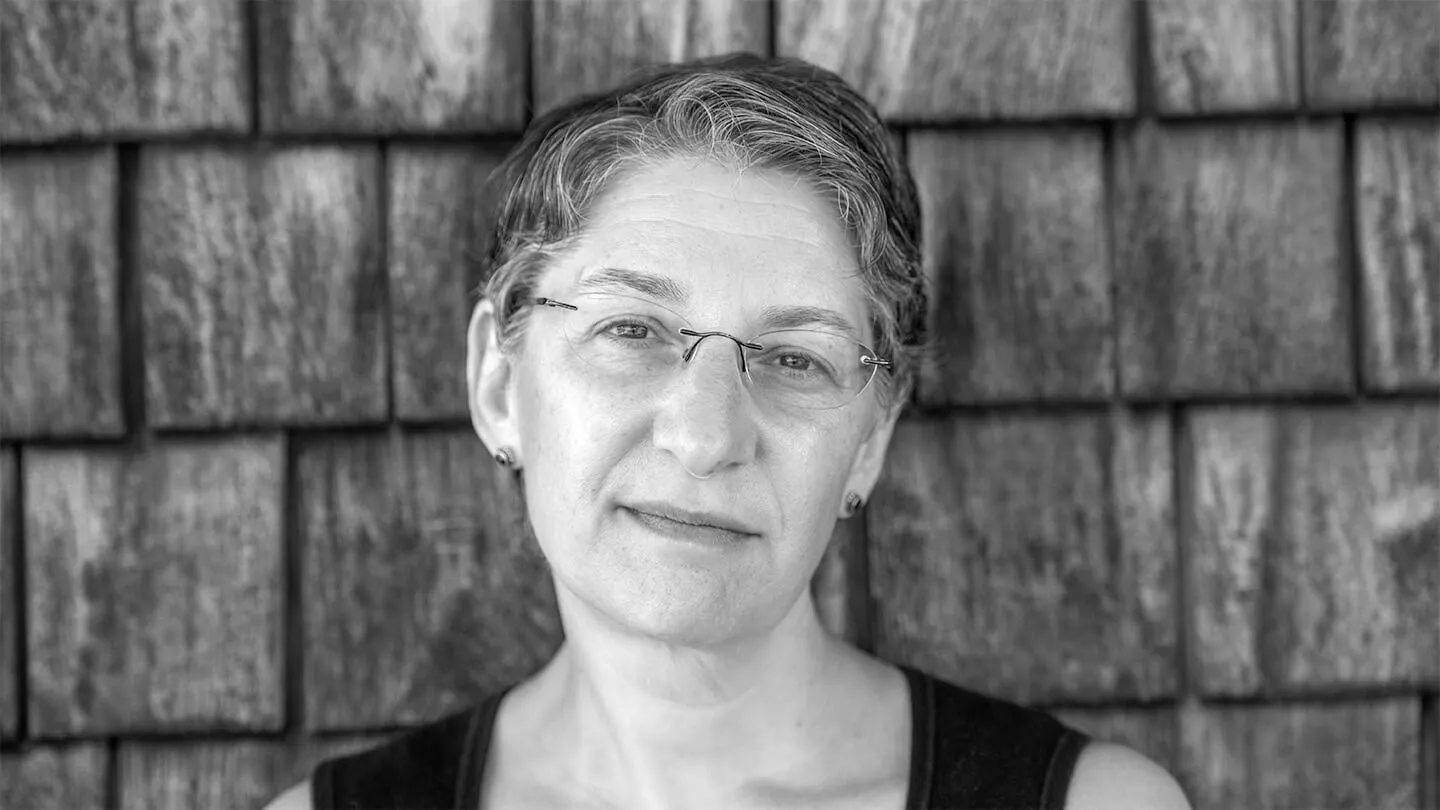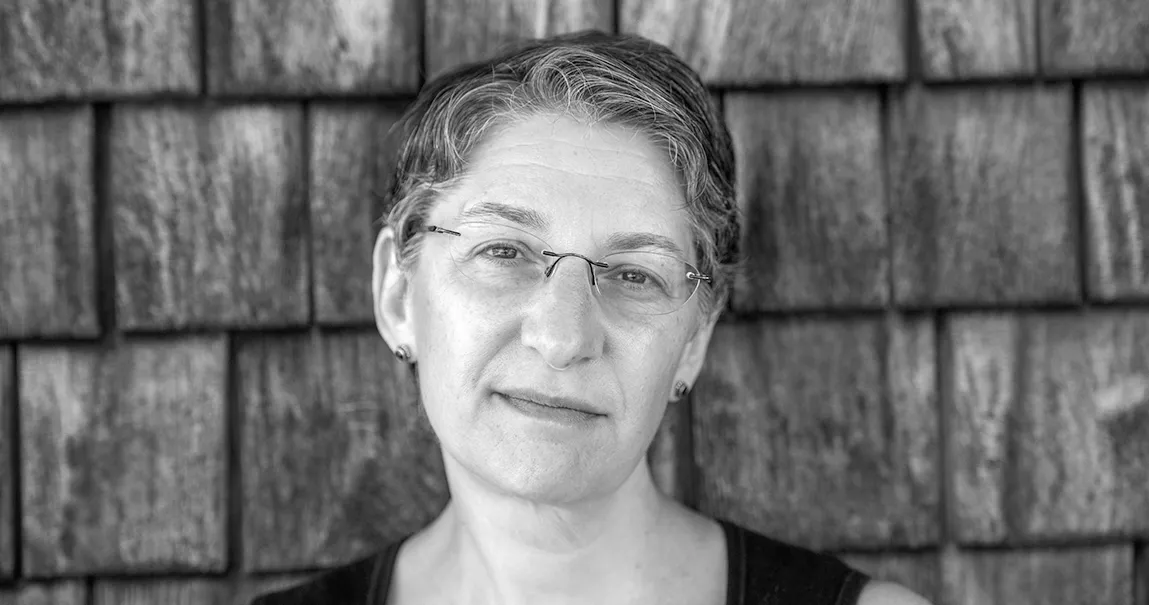Throughout her career, Felicia Kornbluh, Ph.D., has shown a knack for illuminating the present through the lens of the past, and that ability has once again earned her some well-deserved recognition. Earlier this month, Kornbluh, a professor of history and director of the Jewish Studies program in the College of Arts and Sciences at the University of Vermont (UVM), received the prestigious Martin Duberman Visiting Fellowship from The New York Public Library (NYPL). The award provides $25,000 to fund the recipient’s LGBTQ-related research and is given to just one scholar each year.
This is just the latest example of the impact of Kornbluh’s scholarship. A glance at her CV reveals an extensive list of public-facing work, including op eds and articles for well-respected publications like Ms.magazine, The American Prospect, The Atlantic, and The New York Review of Books, as well her recent book, A Woman’s Life Is a Human Life: My Mother, Our Neighbor, and the Journey from Reproductive Rights to Reproductive Justice, winner of the 2024 Independent Publisher Book Award for Women’s Issues. She also writes regular content for her bold, incisive Substack, History Teaches…. The brilliance of Kornbluh’s work is that she uses her deep knowledge of history to provide context and clarity to complicated issues affecting the LGBTQ+ community, women, and disabled people, writing about them in a way that resonates with a broad audience.
We sat down with Kornbluh to talk about her research, her inspirations, and what history can teach us about what’s happening in the world today—and what’s to come.
College of Arts and Sciences: Tell us about the research you’ll be doing at the NYPL.
Felicia Kornbluh: I'm writing a book about the Sharon Kowalski case, which lasted from 1983 to 1991. At that time, it was something that almost everybody in the gay, disability, and feminist communities would have known about. It really was a starting point for the marriage equality movement.
CAS: Can you tell us a bit about the case?
FK: Back in the early ‘80s, a woman named Sharon Kowalski became disabled because of a drunk driving accident. She shared a home with her lesbian partner, Karen Thompson, and they had exchanged rings and made a lifetime commitment to each other. But Thompson soon discovered she had absolutely no rights. She couldn't make healthcare decisions and wasn’t even allowed to see Kowalski in the ICU because she wasn’t considered family.
Kowalski’s parents became her legal guardians and made all the decisions. They rejected the idea that she was gay and refused to let Thompson have any meaningful role in her life. And that became the battle: What standing does a same-sex relationship have in legal or medical situations? It became a kind of national educational opportunity and wake-up call. And, of course, it was happening at the same time as the AIDS crisis, which was giving rise to the same questions.
The case took nearly 10 years to resolve. Part of what I’m writing about is that, during that decade—which was a really conservative time in our history—there was this rich, robust world of feminist publishing that reported all the twists and turns of the case and illustrated how gay people, women, and disabled people were being shut out from the world of legal decision making. But that publishing world had pretty much disappeared by the early ‘90s. I interviewed the founder of one lesbian feminist publishing house who said to me, “We couldn’t imagine that this world wouldn’t go on forever.”
CAS: Looking at the history of how these movements tend to start when they’re most needed, do you see any rumblings of a resurgence now that the challenges facing these groups are increasing once again?
FK: Lesbian feminism is sort of having a moment right now, and I think it does have something to do with a legacy of building these resistant institutions. They’re built on volunteerism, on young people's energy and their capacity to think through new things. The people I’m writing about saw a problem they felt passionate about, so they built a solution, even without mainstream support. I think there's a lot to learn there. Once people really put their shoulders to it, they can change things very fast in terms of both public opinion and the legal system. I find that hopeful.
CAS: You write frequently for a number of public-facing outlets. Who do you see as your primary audience?
FK: I think there's a big audience out there—people who are engaged and interested and want to go beyond the clickbait. Among other things, I think I can perform a service because I’m good at reading and understanding constitutional law cases, knowing what the stakes are, and explaining that in a journalistic way.
There's so much bias around the issues of abortion, reproductive rights, and the trans community, and the discourse is often hostile and unsophisticated. I'm trying to speak to people who are sympathetic and know enough about the issues to know the mainstream isn’t getting it right.
CAS: Why is historical context important when we are talking about these sorts of issues?
FK: History helps us see not only that things can be different, but also how things became what they are. As an historian, I believe legal and constitutional meanings change over time. The Constitution has plenty of room in it to accommodate the needs of a diverse population. Change is part of the story of America. It's part of the story of our law. It's part of the story of our Constitution. If the American legal system is going to be a good system, it has to be a system that accommodates new knowledge and new communities that come forward and demand their rights. And I think we as a community of writers and scholars can play an important role in that.
CAS: Can you talk a little bit about what originally sparked your interest in these kinds of issues?
FK: My mother was a lawyer and, when I was three years old, was the original drafter of the legislation that decriminalized abortion in New York. So, it's fair to say I got it from her. And then when I was nine, I became a journalist for an organization called Children's Express. The very first story I did was about a young woman named Sybil Luddington, who was like the Paul Revere of her town in upstate New York. She warned the residents of her town that the Redcoats were coming and helped organize the militia so they could defend themselves before the British Army arrived.
Later, Children’s Express had a magazine and a syndicated column with the United Press International. With a small team (another 13-year-old, an 18-year-old editor, and our adult publisher) I reported on the children of Cambodia who were driven into refugee camps when the Communist Khmer Rouge took over the country. We published an article in Rolling Stone magazine and were on TV. I also reported from the Soviet Union when I was in high school. I went to Hiroshima, Japan, and led dialogues between American and Japanese kids about their fears regarding nuclear war. My work was part of a package by Children’s Express that was nominated for a Pulitzer Prize. I worked for Children’s Express until I graduated from high school. That was the launching point for me.
CAS: How do you see historical patterns being repeated in today's political and social climate?
FK: I don't want to be too sanguine about it, but I do hear people in my LGBTQ+ activist and scholarly circles saying we've been here before and we know how to survive. We survived a time when we weren't allowed to get married legally. We survived a time when we had to leave the country to get certain kinds of medical care or find networks to access those things. It’s a damn shame that we appear to be going backward, and it makes me angry and disappointed and sad. But at the same time, there's a bit of comfort in the knowledge that there were generations of people before us who survived and who made meaningful relationships and communities.
CAS: Do you get feedback from readers who don't agree with you? How do you handle that?
FK: I do sometimes. It's not usually at the level of serious conversation, though. It's more just people on the internet saying I’m stupid or ridiculous for writing what I write. Still, I know many of these issues, like medical transition for minors or trans participation in school sports, are difficult for a lot of people, and I am definitely open to having those conversations.
CAS: How does your work in Jewish Studies factor into all of this?
FK: I started teaching in the newly created UVM Jewish Studies program in 2017, which was especially meaningful for me because my mom had died not long before. As I argued in my last book, a history of reproductive rights that centers around my mother’s activism on that issue, for her generation of Jewish feminists, their background as American Jews was part of what drew them into the reproductive rights movement. They didn't have the same kinds of barriers that a lot of American Christians did because the traditional Jewish legal approach to abortion is quite different.
While my current project doesn’t have an obvious connection to Jewish Studies, I am planning to do an oral history project on LGBTQ+ Jews in America that has a dual focus on Jewish lesbian feminism and the American Jewish community’s response to HIV/AIDS.
CAS: Is there anything else you’d like us to know?
FK: Along with my public-facing writing, I’m working on some scholarly projects. I’m co-editing a special issue of the Journal of American Constitutional History that will focus on queer American constitutional history. The starting point is the fact that this year, 2025, marks the 10th anniversary of the ObergefellSupreme Court decision, which legalized same-sex marriage nationwide. But the pieces aren't just about marriage. At the same time, my co-editor and I are organizing a mini conference on queer legal history across the globe that will take place in conjunction with the American Society for Legal History’s annual meeting. I’m hoping that will lead to a book as well, and we already have some interest from Cambridge University Press.
You know, sometimes people feel they have to choose between academic work and public-facing work. I’m trying to keep a foot in both camps because I care about all of it.

